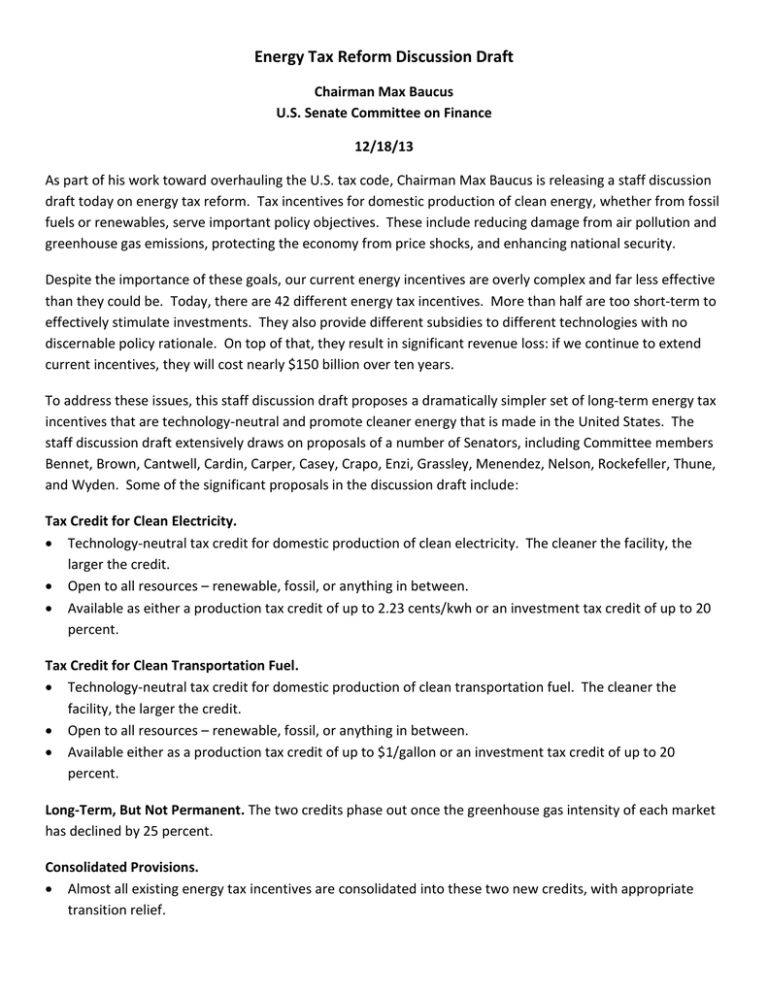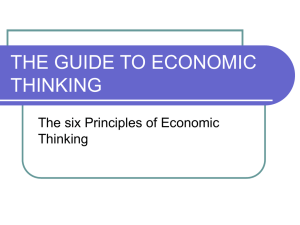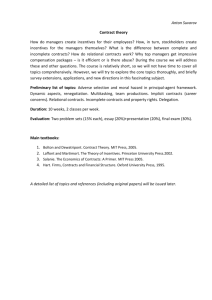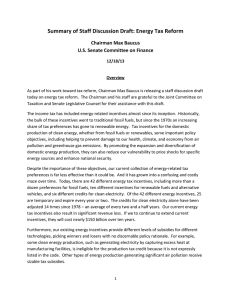Energy Tax Reform Discussion Draft
advertisement

Energy Tax Reform Discussion Draft Chairman Max Baucus U.S. Senate Committee on Finance 12/18/13 As part of his work toward overhauling the U.S. tax code, Chairman Max Baucus is releasing a staff discussion draft today on energy tax reform. Tax incentives for domestic production of clean energy, whether from fossil fuels or renewables, serve important policy objectives. These include reducing damage from air pollution and greenhouse gas emissions, protecting the economy from price shocks, and enhancing national security. Despite the importance of these goals, our current energy incentives are overly complex and far less effective than they could be. Today, there are 42 different energy tax incentives. More than half are too short-term to effectively stimulate investments. They also provide different subsidies to different technologies with no discernable policy rationale. On top of that, they result in significant revenue loss: if we continue to extend current incentives, they will cost nearly $150 billion over ten years. To address these issues, this staff discussion draft proposes a dramatically simpler set of long-term energy tax incentives that are technology-neutral and promote cleaner energy that is made in the United States. The staff discussion draft extensively draws on proposals of a number of Senators, including Committee members Bennet, Brown, Cantwell, Cardin, Carper, Casey, Crapo, Enzi, Grassley, Menendez, Nelson, Rockefeller, Thune, and Wyden. Some of the significant proposals in the discussion draft include: Tax Credit for Clean Electricity. Technology-neutral tax credit for domestic production of clean electricity. The cleaner the facility, the larger the credit. Open to all resources – renewable, fossil, or anything in between. Available as either a production tax credit of up to 2.23 cents/kwh or an investment tax credit of up to 20 percent. Tax Credit for Clean Transportation Fuel. Technology-neutral tax credit for domestic production of clean transportation fuel. The cleaner the facility, the larger the credit. Open to all resources – renewable, fossil, or anything in between. Available either as a production tax credit of up to $1/gallon or an investment tax credit of up to 20 percent. Long-Term, But Not Permanent. The two credits phase out once the greenhouse gas intensity of each market has declined by 25 percent. Consolidated Provisions. Almost all existing energy tax incentives are consolidated into these two new credits, with appropriate transition relief.


